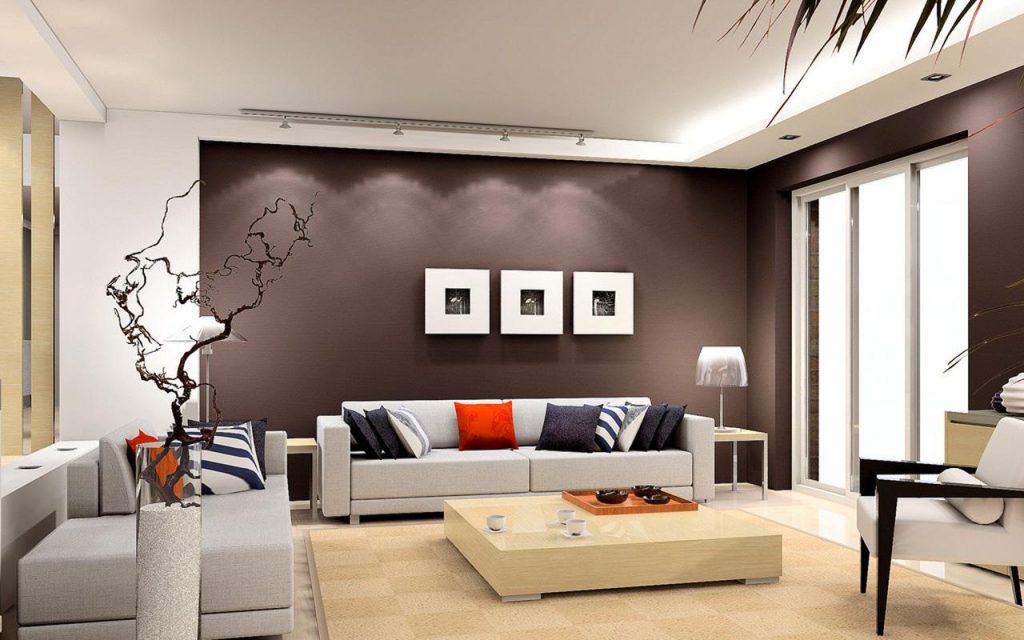Interior design has the remarkable power to transform the ordinary into the extraordinary. It is not merely about selecting furniture and colors, but rather a profound art form that creates spaces that resonate with the human spirit. The impact of interior design is profound and far-reaching, touching not only our physical surroundings but also our emotional and psychological well-being. A well-designed space can evoke a sense of awe and wonder, turning a mundane room into a haven of beauty and inspiration. One of the most striking aspects of interior design is its ability to elevate the functionality of a space. A well-thought-out layout and the careful placement of furniture can maximize efficiency and comfort. For instance, a cramped and cluttered living room can be transformed into a spacious and inviting area with the right design. By optimizing the use of space, interior designers create an environment where everything has its place, enabling occupants to move freely and live more comfortably. This functional enhancement not only improves the quality of life but also contributes to the overall well-being of individuals.

Furthermore, interior design has a profound impact on the mood and atmosphere of a space. The choice of colors, materials, and lighting can create a variety of emotional responses. A room bathed in warm, earthy tones can evoke a sense of coziness and tranquility, while a bright, well-lit space may promote productivity and creativity. The careful selection of textures and materials can add depth and character to a room, making it more inviting and visually appealing. Interior designers are, in essence, emotional architects, crafting spaces that can make people feel comfortable, relaxed, and inspired. Beyond functionality and atmosphere, interior design also plays a significant role in sustainability and environmental impact of Customized interior design in Houston Texas. Designers are increasingly incorporating eco-friendly materials and energy-efficient solutions into their projects. This not only reduces the carbon footprint of a space but also promotes responsible and ethical design practices.
The transformative power of interior design is most evident in commercial spaces. A well-designed retail store can entice shoppers and boost sales, while an office with an inspiring design can enhance productivity and employee satisfaction. Restaurants and hotels, too, rely on interior design to create a unique and memorable experience for their patrons. The impact of interior design in these spaces is not just aesthetic but also economic, with businesses benefiting from increased customer satisfaction and loyalty. In conclusion, interior design has the extraordinary ability to transcend the ordinary and elevate the quality of life. It goes beyond mere aesthetics, encompassing functionality, atmosphere, sustainability, and economic impact. Interior designers are the unsung heroes who transform spaces into something truly remarkable, impacting the way we live, work, and interact with our surroundings. In doing so, they remind us that the spaces we inhabit can have a profound influence on our well-being and our perception of the world.

From Ordinary to Extraordinary – The Impact of Interior Design
October 21, 2023
Shopping
Comments Off on From Ordinary to Extraordinary – The Impact of Interior Design
Sean Hernandez
Interior design has the remarkable power to transform the ordinary into the extraordinary. It is not merely about selecting furniture and colors, but rather a profound art form that creates spaces that resonate with the human spirit. The impact of interior design is profound and far-reaching, touching not only our physical surroundings but also our emotional and psychological well-being. A well-designed space can evoke a sense of awe and wonder, turning a mundane room into a haven of beauty and inspiration. One of the most striking aspects of interior design is its ability to elevate the functionality of a space. A well-thought-out layout and the careful placement of furniture can maximize efficiency and comfort. For instance, a cramped and cluttered living room can be transformed into a spacious and inviting area with the right design. By optimizing the use of space, interior designers create an environment where everything has its place, enabling occupants to move freely and live more comfortably. This functional enhancement not only improves the quality of life but also contributes to the overall well-being of individuals.
Furthermore, interior design has a profound impact on the mood and atmosphere of a space. The choice of colors, materials, and lighting can create a variety of emotional responses. A room bathed in warm, earthy tones can evoke a sense of coziness and tranquility, while a bright, well-lit space may promote productivity and creativity. The careful selection of textures and materials can add depth and character to a room, making it more inviting and visually appealing. Interior designers are, in essence, emotional architects, crafting spaces that can make people feel comfortable, relaxed, and inspired. Beyond functionality and atmosphere, interior design also plays a significant role in sustainability and environmental impact of Customized interior design in Houston Texas. Designers are increasingly incorporating eco-friendly materials and energy-efficient solutions into their projects. This not only reduces the carbon footprint of a space but also promotes responsible and ethical design practices.
The transformative power of interior design is most evident in commercial spaces. A well-designed retail store can entice shoppers and boost sales, while an office with an inspiring design can enhance productivity and employee satisfaction. Restaurants and hotels, too, rely on interior design to create a unique and memorable experience for their patrons. The impact of interior design in these spaces is not just aesthetic but also economic, with businesses benefiting from increased customer satisfaction and loyalty. In conclusion, interior design has the extraordinary ability to transcend the ordinary and elevate the quality of life. It goes beyond mere aesthetics, encompassing functionality, atmosphere, sustainability, and economic impact. Interior designers are the unsung heroes who transform spaces into something truly remarkable, impacting the way we live, work, and interact with our surroundings. In doing so, they remind us that the spaces we inhabit can have a profound influence on our well-being and our perception of the world.